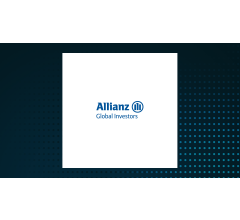Opinion | The Paths to Progress for Our Graduates

To the Editor:
Re “A Promise to Grads Who Show ‘No Promise,’” by Megan K. Stack (Opinion guest essay, June 9):
Ms. Stack provides a dose of wisdom and perspective for parents, educators and teens about resilience and hope.
A teenager I worked with years ago who struggled in high school with academic and other issues is now a successful adult. He recently got back in touch and told me that the biggest fiction from his childhood was how everyone back then said that if he didn’t excel in high school, he’d never amount to anything.
What changed his life and allowed him to persevere was when his dad got his own help through family therapy and was finally able to believe in him, despite his son’s less than stellar academic performance.
Our youths are works in progress with different trajectories, which adults can tilt in either direction. Kids are sensitive to the implicit messages they get from their parents about failure and what constitutes success. A parent’s sense of exaggerated stakes, driven by their own fears, fuels insecurity in their kids and a mounting pressure to measure up to avoid disappointing them.
Ironically, this mind-set interferes with children sustaining internal motivation and developing a stable sense of self to guide them, capacities associated with resilience in college and future success.
Lynn Margolies
Newton, Mass.
The writer is a clinical psychologist working with teenagers and their parents.
To the Editor:
Bravo to Megan K. Stack for writing an essay dedicated to graduates who aren’t sure what to do next.
I remember my graduation from college being full of sadness and anxiety because I had no idea what to do next (graduating in 2008 during a recession did not help either).
It took introspection, hard work and luck, but I found my place in the workplace and in the world.
Evan Miller
Pittsburgh
The writer is a project manager at a financial institution.
To the Editor:
It’s unfortunate that college-bound high school graduates are described as the “achievers,” and the encouragement offered the others overlooks some important things.
Not all kids are cut out for college, not to mention able to pay or incur the huge debt required for college tuition. Today’s skilled work force — a.k.a. the trades — is experiencing a hiring crisis as skilled workers retire.
Many companies offer paid training and work-share programs that offer a path to fulfilling, well-paying jobs in construction, automobiles, aviation and other fields, with great prospects for growth — all without crippling college debt.
Susan Besson
Evanston, Ill.
To the Editor:
Megan K. Stack’s fine essay reminded me of something I’ve thought many times over the course of over 40 years as a high school teacher and administrator.
When I’ve heard comments about seemingly unfulfilled promise or general misdirection, the phrase “they’re not finished products” has almost always seemed apt.
Over the years, I enjoyed attending alumni events just to see for myself the ways in which students’ futures were or were not predicted by high school performance. My conclusion? There’s simply no way to know how things will turn out for any given high school grad.
Michael Chimes
Allamuchy, N.J.
Alito and ‘Godliness’
To the Editor:
Re “What Exactly Did Alito Say That Was Wrong?,” by Marc O. DeGirolami (Opinion guest essay, June 15):
I found Professor DeGirolami’s support for Justice Samuel Alito’s comments about a return to “godliness” very troubling. Thomas Jefferson advocated separation of church and state in an 1802 letter to the Danbury Baptist Association.
The reliance on God and godliness for our views of morality is what led to the overturning of Roe v. Wade, a disaster for this nation’s women. Religious beliefs do not belong in our nation’s jurisprudence.
Nancy Gerber
Madison, Conn.
Sudan’s ‘Epic Tragedy’
To the Editor:
Re “Civil War Pushes Ravaged Sudan Toward Abyss” (front page, June 8):
The war in Sudan is an epic tragedy that has continued since the country was split in two in 2011. For more than five decades, conflict has ravaged Sudan unabated, forcing men into combat and women into unimaginable violence.
I was born into this violence, and became a refugee at age 5. As the article makes clear, Sudan is again on the brink of disaster. Children will be separated from their families or become homeless, and they will endure years of profound trauma and abuse. Many will starve to death.
In Sudan, starvation is used as a weapon. It is time for the United Nations to state clearly and forcefully that Sudan is undergoing a famine, and to recognize the enormous death toll and anarchy that are coming if the self-interested parties continue to choose sides between the military and the militias fighting for control of the country instead helping to negotiate a lasting peace.
Abang Anade Othow
Sydney, Australia
The writer is a national ambassador for the Refugee Council of Australia and a survivor of the Sudanese civil war of 1983.
Protect Whistle-Blowers
To the Editor:
“Insiders Warn of OpenAI’s Reckless Race to No. 1,” by Kevin Roose (The Shift, front page, June 5), is a reminder of how much we rely on whistle-blowers to step forward and alert the world to dangerous conduct, often motivated only by their own ethical standards and at their own peril.
It is also a stark reminder that whistle-blowers currently rely on a patchwork of protections and programs run by individual agencies for particular industries.
We need a broader, comprehensive approach to whistle-blower protections that will cover all employees in the largely unregulated technology sector, which remains shrouded in secrecy despite producing new and inscrutable products that affect our lives in ways we have yet to fully understand.
Artificial intelligence and social media are the most urgent examples of industries that desperately need the transparency that only whistle-blowers can provide, but we should take this opportunity to expand whistle-blower protections even more broadly so that we do not need to wait for the next open letter from insiders to learn whom we have left out.
Sam Brown
Washington
The writer is a whistle-blower attorney.
Dreading Election Night
To the Editor:
I have been a big fan of election night since I was a child. I can tell you who won and lost every election in my lifetime and even who their vice presidents were or would have been if they had won. I can tell you who the third-party candidates were and whether they had an impact on the result. I would nap that day so I could stay awake later.
This year I am dreading election night. I am thinking of sleep deprivation for the days before so that I might sleep through it.
The Republican election deniers are setting this up so that Donald Trump either wins or it was rigged. I’m unsure how this will work out for us in the aftermath.
We citizens have an obligation to make this right. We must hold our legislators, the judicial system and, yes, the media to account. Overpolling and underreporting are a problem now. It’s too much about mood and too little about facts. We have an obligation to do better.
Elliott Miller
Bala Cynwyd, Pa.



